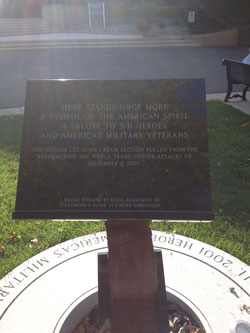Voters of New Jersey were asked to vote on two state-wide questions during the election. The questions dealt with casino gambling and the gas tax. The two yes or no questions were located on the November 8, 2016 ballot.
Question one on the ballot was about allowing casino gambling in two other New Jersey counties besides Atlantic County and 78 percent of the New Jersey voters chose no on this issue.
Over twenty groups were against the measure and based on the ballot it seems many New Jersey residents agreed. If this amendment was voted in, two more casino locations would be allowed to open in Northern New Jersey.
The amendment would take away a great deal of power that Atlantic City has had over the years. Many people note that this measure would halt the monopoly Atlantic City casinos have had in New Jersey since 1976. The amendment noted that the casinos would have to be at least seventy-two miles away from Atlantic City.
This referendum would give a portion of the taxes collected on these new casinos to rebuild the economy in Atlantic City. Groups such as “No North Jersey Casinos” and Trenton’s “Bad Bet” led a stronghold over swaying voters against such a measure as in question one.
Associate professor of political science, Dr. Joseph Patten said, “I’m not surprised with the outcome of the two ballot questions. With respect to gambling, false promises were made in Atlantic City so based on the Atlantic City model people are starting to realize that the gambling market is saturated.”
He continued, “Most people can politically agree that infrastructure safety is important to invest in because it is an important issue. The problem is whether or not funds will go to the right place. Sometimes it is a bait and switch issue.”
The second ballot referendum in New Jersey dealt with the budget ideas permitting all gas revenue to go directly to the transportation fund.
This question was voted yes, by a bigger marign that question one. With this amendment being passed, 54 percent of New Jersey citizens felt that all of the funds from gas revenue should go directly to the Transportation Trust Fund (TTF). Prior to the amendment, only 10.5 percent of the gas revenue would go to the TTF.
This amendment was not intended to actually create the increased gas tax; instead, it would go hand in hand with the recent tax to help rebuild damaged roads and bridges.
Many say that New Jersey bridges and roads need a lot of help in order to remain safe for travelers. This measure could help prevent any further bankruptcies the fund may face. Road to Repair and AAA are just a couple of the groups that supported the amendment located on the NJ ballot.
Many felt that the safety of the roads and bridges is not something to play with if the welfare of citizens can be at risk. While Governor Christie supported the amendment, Lieutenant Governor Kim Guadagno opposed the amendment to put this revenue in the TTF.
Associate professor of political science, Dr. Stephen Chapman said, “The outcome of the two ballot questions is not surprising. The political and public opinion landscape of the casino referenda was doomed for failure.”
He continued, “People saw the model of Atlantic City and knew it would not work. As far as the TTF, people have seen in the past, even with other governors that money did not go to where it was supposed to. With this referendum, it is a reassurance to people that revenue will be allocated to the appropriate fund.”
Gabriella Greco, senior marketing student notes, “I’m not surprised at all by the outcome of the casino ballot question. Atlantic City is already doing so poorly, why would anyone think it would work in North Jersey.” Then asked, “Also, why people want to take any potential business away from Atlantic City who is already failing?”


